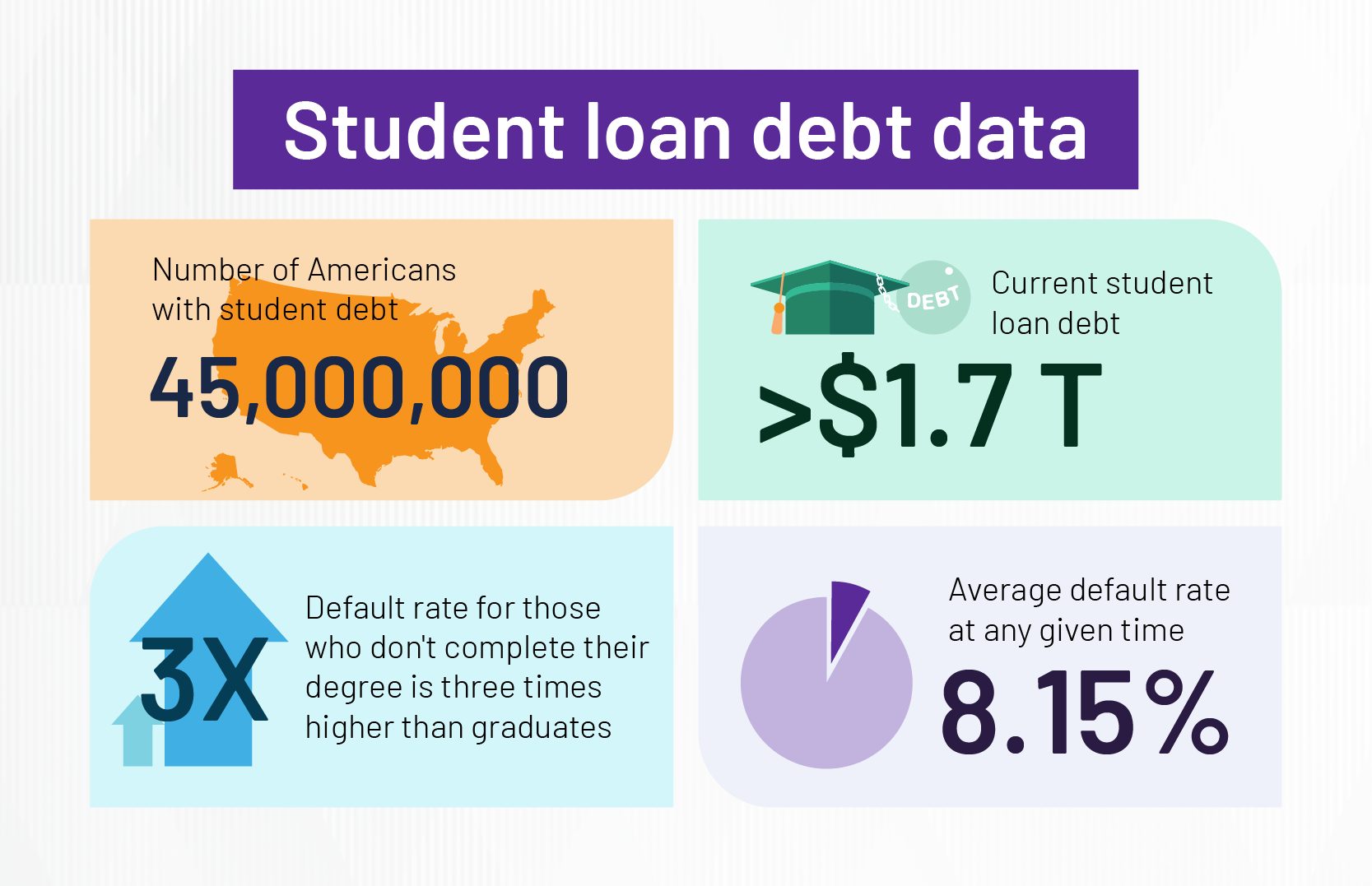
Today, students are struggling to keep up due to worsening mental health and high tuition costs. Higher education institutions must look for more proactive ways to support students to keep retention levels from dipping. Thankfully, most institutions already have access to data that allows them to do this — just take a look at your learning management system (LMS).
An LMS is full of data you can use to identify struggling students and offer them support before they decide to drop out. All you need is your LMS, the right technology, and an informed approach to boost your support efforts, student outcomes, and retention rates.
Understanding the wealth of data within your LMS
An LMS can tell you a lot about how well a student is doing at your institution. As they attend online classes, complete assignments, and participate in discussions, the LMS begins collecting various data. Analyzing this data can help you better understand students and provide more targeted support when they need it.
Here are just a few of the types of data an LMS collects and what it can tell you about students:
- Login frequency: Students must log in to use the content on an LMS, and you can use this data to understand how engaged a student is in their learning. The more frequently they log in, the more invested and engaged they are. However, it’s important to consider that some courses require more use of an LMS than others.
- Resource use: Most LMS platforms contain resources for students to support their learning, such as videos, documents, and practice assignments. You can collect the resource views and download data to assess how often students actively seek information and use the sources you provide.
- Assignment submissions: Some institutions require students to submit their assignments through the LMS platform. The data it collects about submissions can tell you whether a student completes their assignments and if they submit them on time.
- Forum activity: If you have discussion forums on your institution’s LMS, you can track student participation through their posts, replies, and reactions. Their activity can tell you if they’ve established relationships with peers and teachers and enjoy their studies.
- Class attendance: For courses with online classes held through an LMS, you’ll have access to data such as class attendance, engagement, and duration. These metrics indicate how happy and engaged a student is, especially if they attend most classes, participate in class discussion, and stay until the end of the session.
- Scores and grades: Faculty can use an LMS to deliver quizzes and assignments to students. Once they’re complete, the LMS or faculty will give students scores that contribute to their overall grade. You can use these scores to assess how well a student comprehends the content and how much work they put into their studies.
Predicting when students need support with LMS data
On its own, LMS data is just numbers and words. When you take the time to organize and analyze it, patterns may emerge that paint a clearer picture. For example, the following patterns in LMS data can indicate signs of disengagement or struggle in students:
- Infrequent logins
- Limited use of resources
- Late assignment submissions
- Minimal forum participation
- Poor online class attendance
- Low scores and grades
However, traditional data analysis can be time-intensive, especially with large amounts of complex data. It may also be too late to help students who are already showing clear signs of disengagement. The best way to help them is to predict it before it happens. Thanks to LMS integration, predictive models, and predictive analytics, this is now possible.
Your institution can feed LMS data directly into predictive models, which use data and algorithms to predict future outcomes. These models can monitor LMS data patterns in real time and make predictions about student performance and engagement.
When the model identifies a student at risk of dropping out, relevant faculty receive a notification so they can intervene. Early intervention is key to supporting students and keeping them enrolled.

Proactive support strategies for struggling students
Once faculty identify a student who may need extra support to succeed based on LMS data, they can assess other information they know about the student. This extra step ensures faculty only reach out to students who need support, as predictive models lack context.
For example, a student might miss some classes to help their family but still do well on the next assignment. However, it’s time to intervene when a predictive model gives them a high-risk flag and they also start showing signs of disengagement in their interactions with faculty.
Once faculty determine there is cause for concern, they can use various support strategies to get students back on track. They can start by reaching out to students to find out how they’re doing and what they need help with. From there, they can offer additional support like extensions and one-on-one meetings. Faculty can also refer students to additional support services, such as financial aid, academic advising, and counseling.
Considerations for using LMS data
Despite how beneficial LMS data is for supporting students, there are some ethical concerns to consider. At the forefront are data privacy and security issues, as LMS platforms often collect sensitive information. It’s vital to obtain student consent and use sufficient security measures to protect their data. You should also only collect the data you need and ensure faculty only use it for its intended purpose.
Another key consideration is that some students may not appreciate being monitored or labeled. They may view this as an invasion of their privacy, which can affect their view of your institution. Even if you use their data ethically, students may have some concerns about what data you’ve collected and what conclusions you’ve drawn from it. Be transparent about what data you collect and allow students to opt out.
Use LMS data to support student success with Watermark

Designed by higher education professionals, Watermark’s Educational Impact Suite (EIS) helps you collect and analyze data from across your institution in one centralized location. At the center is our Insights Hub, which provides context to your data so you can see the full story. Our software streamlines tasks and data collection so you can focus on supporting students.
One of our tools, Watermark Student Success & Engagement, has everything you need to leverage LMS data for proactive support. The software integrates with top LMS platforms like Blackboard, Canvas, and Ellucian. Once connected, you can collaborate with students to create guided pathways and monitor their progress. The software’s predictive analytics will give you early alerts for struggling students and offer guidance on how to support them.
Set your students and institution up for success with Watermark by requesting a demo today!















































































































































































































































































































































































































